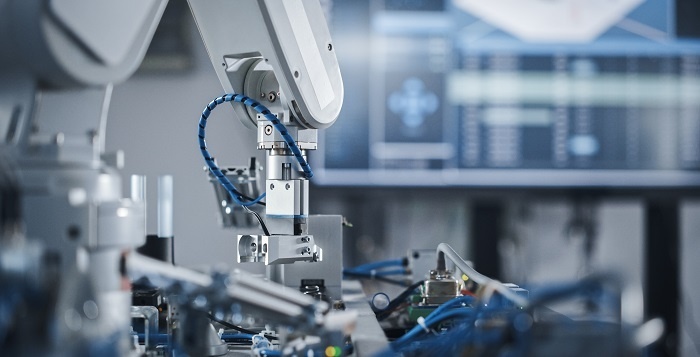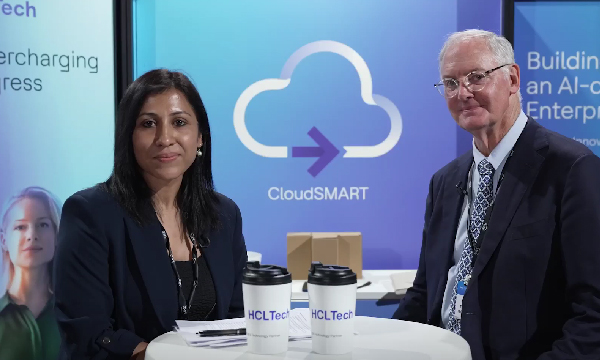Advancements in AI-ML and its wide adoption across industries have led to improved productivity and innovation in the last five years.
Coupled with the introduction of large language models in recent years, AI-ML has gone beyond business operations to solve real-world issues.
HCLTech has already helped its global clients address global problems by implementing new-age technologies like AI-ML, data analytics, IoT, cloud and many more.
Having moved in the right direction so far with success across industries, HCLTech has recently unveiled an easy-to-use ML platform that is meant for technical and non-technical users. This platform is targeted toward easy access of AI and ML, saving costs and enhancing efficiency while dealing with day-to-day and real-world problems.
Natural disasters
Today, natural disasters are much more severe than even a decade ago because of climatic change.
In fact, a UN report mentioned that climate and weather-related disasters grew five times in the last 50 years.
Addressing increasing incidents of floods, cyclones, droughts, rising temperatures and wildfires requires better prediction and prevention tools and AI-ML has been helpful in these areas.
AI-powered cameras provide real-time footage (data) from disaster-prone areas, which can be processed further to derive insights.
Using such data, the Google Flood Hub provides free flood alerts up to seven days in advance in 80 countries.
Beyond flooding, the world is on the precipice of a freshwater disaster.
Through a $15 million investment over five years, HCL Group is helping address this and create a first-of-its-kind innovation ecosystem for the global freshwater sector, called the Aquapreneur Innovation Initiative.
It’s committed to accelerating multi-stakeholder collaboration and innovation in the global freshwater conservation space.
In addition, HCLTech uses AI to help address freshwater conservation through its AquaSphere initiative. Here, data helps an organization use water sustainably, preventing waste and encouraging the green use of water.
Healthcare
Challenges in this sector have no end and include capturing accurate data, maintaining data privacy and security, ensuring the compatibility of medical equipment, lack of trained professionals, fragmented patient care and compliance hurdles.
From fraud detection to data leaks, customer-relationship management to automated patient care and data safety, AI serves as a strong ally. With predictive analytics, deep learning and neural networks, for example, healthcare organizations are detecting anomalies and shielding their operations from sophisticated cyberattacks.
Moreover, the use of AI-ML has brought in the required scalability for data architectures. Powered by IoT and cloud solutions, AI is today easing healthcare operations. Improving remote patient and employee care experiences are also a priority for healthcare organizations.
HCLTech has developed a generative AI-powered agent to address queries. The chatbot’s intervention helped save 40% time for healthcare workers.
Education
The news of mass cheating during board exams in the Indian state of Bihar shocked people of the country last year. But the problem is not confined to India alone. A 2023 International Center for Academic Integrity study found 64% of high school students in the US admitted to cheating. The rise in remote education has posed new challenges to countering this problem.
Addressing this challenge, HCLTech developed an AI-assisted remote proctoring solution for one of its clients in the US. This solution increased efficiency of examinee-to-proctor ratio by five times, reduced cost per stream analytics by less than $0.5 and enabled to process 10,000 video streams simultaneously worldwide, among other benefits.
AI has been helping students with information visualization, digital lesson generation, personalized learning, task automation, customized data-based feedback, adaptable access, determining classroom vulnerabilities, 24x7 assistance with conversational AI, secure and decentralized learning systems and examination assistance.
Agriculture
The UN’s annual report on climate change mentioned that up to 84% of drought-related economic impacts occur in the agriculture sector.
Australia is among the countries affected by flooding as well as drought. HCLTech delivered a cloud-based, AI-driven Intelligent Data Platform that enabled real-time insights and data-driven decision-making to an Australian government organization responsible for delivering retail water supply and wastewater services.
Elsewhere, AI has been instrumental in running self-driving tractors, combining harvesters, drones and robots for crop inspection and watering and spraying insecticides on the plants at the right time. Companies like Plenty and AppHarvest are using AI and data to adjust the indoor farming environment for optimal nutrition and flavor.
Policing and traffic management
From predictive analytics, IoT and AI-enabled cameras to drones, biometrics and facial recognition, the list of innovations for tackling crime and traffic movement is extensive. These innovations are accelerating the development of unique solutions for people’s safety and smart city governance.
Mexico, for example, has deployed technology solutions to improve safety standards in various cities. In 2020, the Crime Index by Numbeo ranked Mexico as the 34th most dangerous country in the world.
This is when the government partnered with HCLTech to turn this around by adopting a ‘smart city’ model, supported by robust AI-enabled surveillance capabilities and an integrated IoT ecosystem. By mid-2023, the country’s position in the crime index improved by six places as the adoption of technology helped the country become safer.
The road ahead
Besides the specific use of AI to solve real-world problems across industries, moving forward, organizations need greater access to easy-to-use AI-ML platforms and services to solve the world’s most pressing challenges while improving business operations.
Here, a platform like HCLTech’s AI lifecycle management platform, AION can be helpful as it simplifies the process of scaling AI-ML and empowers people to create deployable and easy-to-use ML models. It’s meant for expert data scientists and citizen data scientists (working in code) as well as business users (low code/no code).





